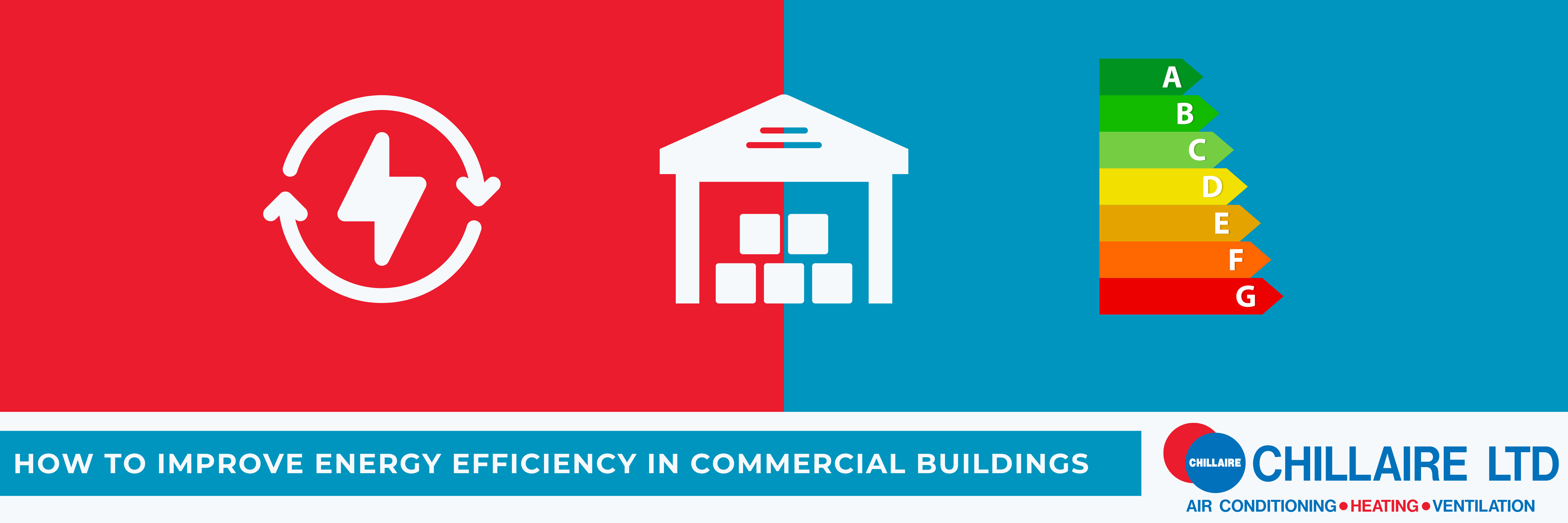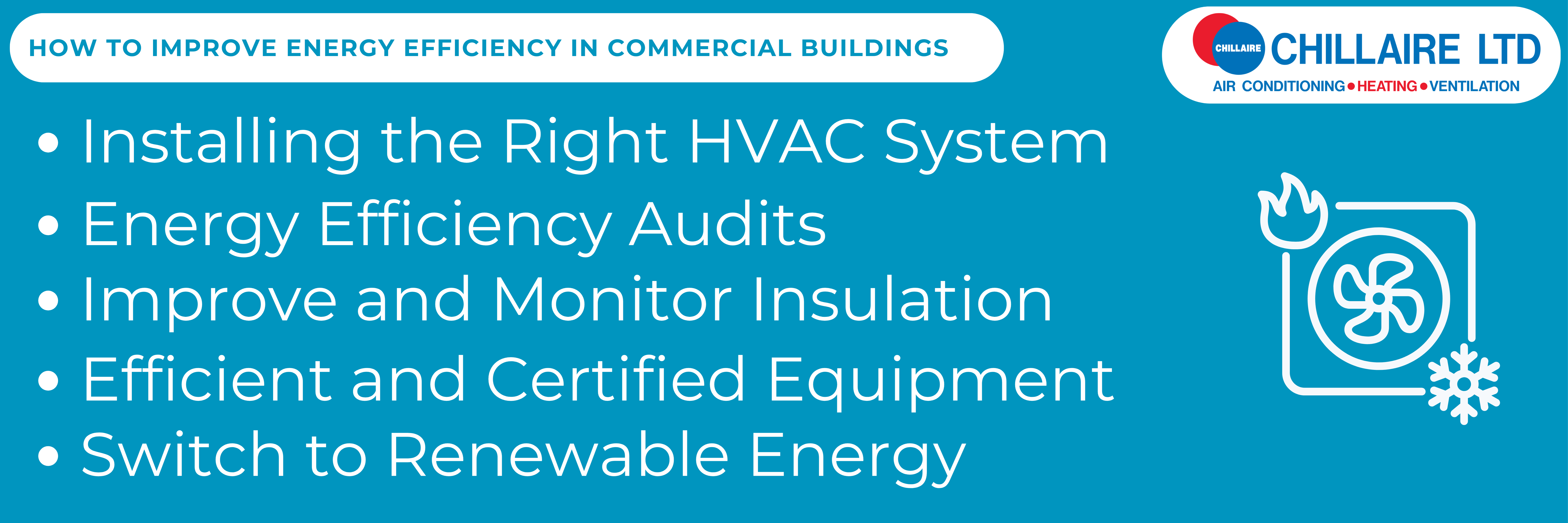
How to Improve Energy Efficiency in Commercial Buildings
With the ever-growing importance and issues of climate change impacting our future, it’s wise to know how to improve the energy efficiency in your commercial building. As a result of the government’s Energy White Paper released in 2020, the Net Zero policies confirmed the minimum energy efficiency standards for rented non-domestic buildings to be EPC B by 2030. Making it now, more than ever, important to improve your energy efficiency.
Why Energy Efficiency Should Matter to You:
Reduced Costs
Implementing positive energy efficiency changes can directly reduce operational expenses and lower utility bills. Upgrades such as new HVAC systems, enhanced insulation and energy-efficient equipment help businesses save money in the long term.
Increased Comfort
Energy-efficient buildings maintain more consistent temperatures due to their improved insulation and heating systems, ensuring a comfortable working environment. Installing the right equipment can also enhance air quality and ventilation in commercial buildings with demanding requirements.
Environmental Benefits
Energy-efficient upgrades reduce carbon emissions and have other environmental benefits, helping your businesses meet sustainability goals and contribute to a greener future.
Installing the Right HVAC System
One of the best ways to improve the energy efficiency of your commercial building is by installing or upgrading to new HVAC systems. Whether your building needs adequate ventilation or requires heating in the winter, a modern HVAC system can significantly reduce energy consumption.
Although it may sound simple, each property is unique and will require different systems. If you are looking to air condition your office, you may want to consider an air source heat pump, however if you operate within an open-plan warehouse, then a traditional gas fired heater or electric warm air heater may be more suited. These benefit from being axial fan assisted, ensuring maximum coverage across your space.
For other buildings, such as large distribution warehouses, the whole building may not require temperature control, it may only be a small operating area that requires heating and cooling. Therefore gas or electric radiant heating may be more suited as they are designed to heat specific spaces or objects, unlike fan assisted warm heaters which are designed to heat the whole area or building.
At Chillaire, our experienced team across the Midlands is on hand to help assess your HVAC needs and provide support; ensuring your building meets the regulations and improves in its energy efficiency.
Energy Efficiency Audits
An energy efficiency audit is the first step in identifying areas for improvement in your building’s energy use. During the audit, an expert will assess factors that affect your energy efficiency, such as your HVAC system, insulation, lighting and equipment, to find areas of inefficiencies and provide recommended changes.
Once you have received your audit, you can then begin to implement the recommendations to reduce energy consumption, lower your operating costs and enhance overall building performance. Regular efficiency audits help to maintain long-term energy savings and ensure your building stays up to date with efficiency standards.
Improve and Monitor Your Insulation
Effective insulation is key to improving energy efficiency by reducing heat loss in winter and preventing heat gain in summer. Enhancing your building’s insulation through upgraded wall insulation, roof insulation or sealing gaps, ensures your HVAC system operates more efficiently, reducing energy consumption.
Regularly assessing the effectiveness of your insulation and sealants will lead to a better operating efficiency of your heating and cooling systems. This proactive approach ensures your building stays energy-efficient, lowers heating and cooling costs and improves comfort throughout the year.
Use Energy Efficient and Certified Equipment
Investing in energy-efficient, certified equipment is essential for reducing energy consumption and operational costs. The best approach is to look for appliances and HVAC systems that have high efficiency ratings.
HVAC units are often assessed by their SCOP and SEER. These assessments rate the seasonal efficiency of a system for both heating and cooling purposes. However, it is not just HVAC systems that should have their energy efficiency assessed.
Other equipment such as LED lighting, low-energy appliances and heavy machinery should also have efficiency ratings on their power consumption and output. By updating to certified, high-efficiency systems, your commercial building will meet regulations, benefitting both your budget and the environment.
Switch to Renewable Energy
Switching to renewable energy sources seems like an easy solution to improving your building’s energy efficiency. And although this may sometimes be an option, it is not always the best solution. Commercial HVAC systems are available using both traditional fuels such as gas, or more modern renewable systems such as heat pumps which operate on electricity.
Renewable energy systems often provide better energy efficiency than conventional systems, but this is limited and dependent on many factors. In commercial buildings with large open spaces, the energy consumption of renewable sources may overtake that of traditional systems, leading to higher costs and lesser efficiency.
At Chillaire, we offer heating and air conditioning consultations across the Midlands to assess your building and offer you HVAC solutions to improve your energy efficiency.
If you are looking for more information, please get in touch with our friendly team or fill out the contact form below and we will be in touch.
Get In Touch.
This enquiry is sent to us by email & text. Saving you time and hassle!



